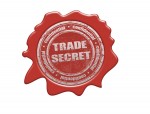According to F.S. §688.002(4), the phrase “trade secret” means information, including a formula, pattern, compilation, program, device, method, technique, or process that:
a) Derives independent economic value, actual or potential, from not being generally known to, and not being readily ascertainable by proper means by other persons who can obtain economic value from its disclosure or use; and
b) Is the subject of efforts that are reasonable under the circumstances to maintain its secrecy.
Even more, an injunction cannot be granted upon mere allegation of the employee’s “use” of “specific trade secrets.” The presumption of irreparable injury, and thus the enjoinability of the employee’s conduct, attaches only after the employer has proved the use of specific trade secrets. Lovell Farms v. Levy, 641 So. 2d 103, 105 (Fla. 3d DCA 1994).
In most cases, trade secret litigation is factually intensive, turning on the question of whether the employee did or did not take trade secrets from a former employer. This conflict can be unbearably suspenseful and produce unpredictable results. The better approach is to address the legal issues of whether the subject information qualifies as a trade secret, whether the employer has waived its entitlement to protection of the trade secret and whether the employee has used the trade secret.
The expansion of the Internet has given access to information that was previously unavailable. Vendors of custom-tailored customer lists are easily accessible by the computer-owning general public,a situation without historical precedent. The availability of these lists has a direct impact on whether a particular company’s customer lists are trade secrets or are in the public domain. Generally, when a company is engaged in business as a manufacturer or wholesaler dealing primarily with retail merchants or jobbers, or sells to members of a readily ascertainable class, the employee’s knowledge of the names of the former employer’s customers is not a “trade secret.” Renpak, Inc. v. Oppenheimer, 104 So. 2d 642 (Fla. 2d DCA 1958)
Therefore, if a list of customers can be obtained in the open market that can produce a list similar to that sought to be protected by the prosecuting employer, the customer list should not qualify as a trade secret under Florida law. In Thomas v. Alloy Fasteners, Inc., 664 So. 2d 59, 60 (Fla. 5th DCA 1995), the employee developed customer lists by “telemarketing, phones, making calls …. You get a list, and start making cold calls, and see what the people need for supplies.” The court stated that: There is nothing magical or secret about this method. The names are available from public sources and there was no secret as to the class of likely customers. Renpak, Inc. v. Oppenheimer, 104 So. 2d 642 (Fla. 2d DCA. 1958)
Customer lists may not qualify as trade secrets unless the employer presents evidence that they are the product of great expense or effort, that they are distillations of larger lists, or that they include information not available from public sources. See Pure Foods, Inc. v. Sir Sirloin, Inc., 84 So. 2d 51 (Fla.1955); Harry G. Blackstone, D.O., P.A. v. Dade City Osteopathic Clinic, 511 So. 2d 1050 (Fla. 2d DCA 1987), review denied, 523 So. 2d 576 (Fla.1988); Renpak, Inc. v. Oppenheimer, 104 So. 2d 642 (Fla. 2d DCA 1958). See also Zodiac Records, Inc. v. Choice Envtl. Servs., LLC, 112 So. 3d 587, 590 (Fla. 4th DCA 2013) “We note that a former employer’s customer relationships do not automatically qualify as trade secrets, even if a party’s restrictive covenant attempts to characterize them as such. East v. Aqua Gaming, 805 So. 2d 932, 934 (Fla. 2d DCA 2001). To qualify as a trade secret, there must be evidence that a customer list “was the product of great expense and effort, that it included information that was confidential and not available from public sources, and that it was distilled from larger lists of potential customers into a list of viable customers for [a] unique business.” Id.”
If the information on the lists is easy to obtain merely by looking at the advertisements, magazine, periodicals, in addition to many other sources, local newspapers and the yellow pages, they will not qualify as trade secrets. Templeton v. Creative Loafing Tampa, 552 So. 2d 288 (Fla. 2d DCA 1989).
The plaintiff must demonstrate both that the specific information it seeks to protect is secret and that it has taken reasonable steps to protect that secrecy. Id. However, if the information the plaintiff seeks to protect is generally known or readily accessible to third parties, it cannot qualify as a “trade secret.” See Id.
The Court’s determination that the information Plaintiffs seek to protect is “confidential” for purposes of its breach of contract claim does not require a finding that the same information is a “trade secret.” See Roboserve, LTD. v. Tom’s Foods, Inc., 940 F.2d 1441, 1456 (11th Cir. 1991) (“[A]n item may be considered confidential in the context of a business relationship without rising to the level of a trade secret.”) (applying Georgia law). Godwin Pumps of Am., Inc. v. Ramer, 2012 U.S. Dist. LEXIS 46710 (M.D. Fla. Apr. 3, 2012) See also, Templeton v. Creative Loafing Tampa, Inc., 552 So. 2d 288 (Fla. 2d DCA 1989)(customer list not a trade secret because could be derived from public publications). See also Public Systems, Inc. v. Towry, 587 So. 2d 969, 972 (Ala. 1991) (spreadsheet data program not a trade secret because data compiled from government information generally available to public).

